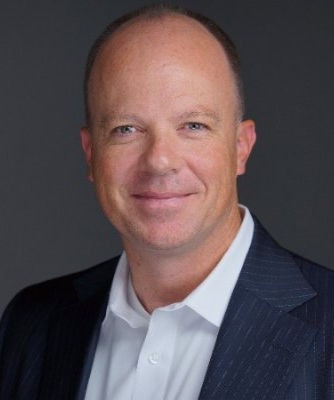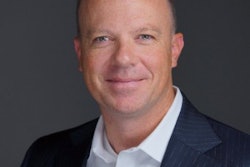
We've all heard the worn-out statement, "There is no 'I' in team," meaning that we should give up our interests for the good of the group. Every business yearns for team players who can achieve a goal by nurturing and harnessing the energies of all involved and reaching a new plateau together and in harmony.
Yet ideal team players are scarce.As leaders, we want team players, yet we aren't sure how to find them or what best traits to look for in a job interview.
 Dr. James Anderson.
Dr. James Anderson.In The Ideal Team Player, author and business consultant Patrick Lencioni describes the model team player. He also explains how to develop current employees into team players and make sure you hire team players in the future.
Lencioni defines three essential personal qualities or "virtues" the ideal team player embodies -- humility, hunger or drive, and people skills.
Can most people learn to be ideal team players? The answer is yes, with coaching and a strong commitment from the employer. But business leaders who hire employees who already demonstrate humility, hunger, and people skills (referred to in the book as "smarts") get better results and eliminate politics, turnover, and moral issues.
The 3 virtues of a team
In the book Good to Great, author Jim Collins writes that successful companies prioritize hiring the "right" people who fit their culture. But many leaders hire for job skills and suitability instead.
For organizations committed to a teamwork culture, the right people are those that share the traits of being humble, hungry, and smart. These three traits work in harmony, and when one is missing, it could derail the balance.
What it is to be humble
Humble people don't need the spotlight, a big title, and a big platform. Their egos are in check; they aren't attention-seeking and readily give credit to others. It is misleading to think that humble people lack self-confidence and downplay their contributions and worthiness. Trustworthy, humble people do not overrate or underrate themselves.
What it is to be hungry
Hungry people are not often satisfied with their status quo. They are driven to seek more value-based work and more responsibility. They see beyond what's in front of their nose and want to take the next step to opportunity. They go above and beyond, such as working over regular hours and helping others without being asked.
What it is to be smart
Smart doesn't mean a high IQ. In the team context, it means having common sense when dealing with people. "People skills" is a broad term but means being able to read a situation and respond with integrity and fairness after listening to the words and observing the team's actions.
You can improve a team's effectiveness by assessing how people measure up to the virtues of an ideal team player and by helping those who fall short of developing the right qualities or moving on to something else.
Over the years in building dental practices and businesses, I look for solid team players. They work tirelessly to get the job done because they take great pride in accomplishment for everyone, not just themselves.
An example of a real team player
Here's an example of a real team player as told by one of the hungry, humble, and smart dental insurance billing agents driven to get the claim paid:
"My worst claim story is for a worker's compensation claim for a patient that had an accident in 1970. The patient had to have major facial reconstruction. He lost all his teeth on the lower arch. He has a subperiosteal implant that retains a full lower denture. He needs to visit an oral surgeon at least once a year for maintenance, component changes, and surgical gingivectomies around all implant parts; since it is subgingival, it tends to grow a lot of granulation tissue. The claim had to be submitted by mail as this was a union plan backed by Medicaid since the patient is now retired. It was denied for six months stating they needed more information.
When I would call, the union would tell me that they don't have access to denial codes and did not know how to reach out to Medicaid. I continued to send all the available information. Finally, Medicaid contacted the provider a year later, stating they would not pay due to timely filing limitations. That took three months of appeals and copies of claims and letters I had been sending for months. After three months, they responded with an explanation that they do not cover any implant-related services. I continued to submit appeals every month. I reached out to the patient and explained the situation. The patient and the provider were owed these benefits. Due to his worker's compensation status and history, he is entitled to receive treatments related to his injury for the remainder of his life. The patient called, and they too ignored his requests.
I finally mailed him diagrams, pictures, and explanations of what a subperiosteal implant is, how it works, and why he needed the treatment. The patient then went to the union, personally handed my appeals, and processed it on the spot! It turns out that the reviewing providers for both the union and Medicaid did not know what a subperiosteal implant was and had never seen anything like it before so that they would deny it as a noncovered service. It took us 18 months, but all $6,000 was paid in full plus $75 in interest."
Persistence wins along with the help of an ideal team player.
Dr. James Anderson is a practicing dentist in Syracuse, UT, and is the CEO and founder of eAssist Dental Solutions. He can be reached via email.
The comments and observations expressed herein do not necessarily reflect the opinions of DrBicuspid.com, nor should they be construed as an endorsement or admonishment of any particular idea, vendor, or organization.


















